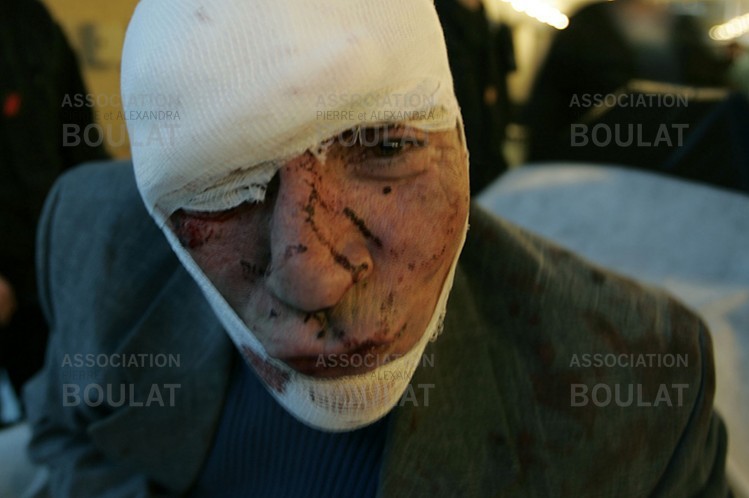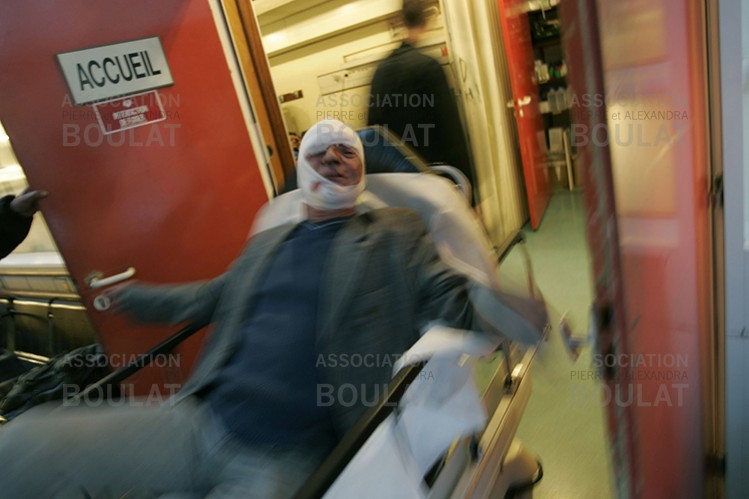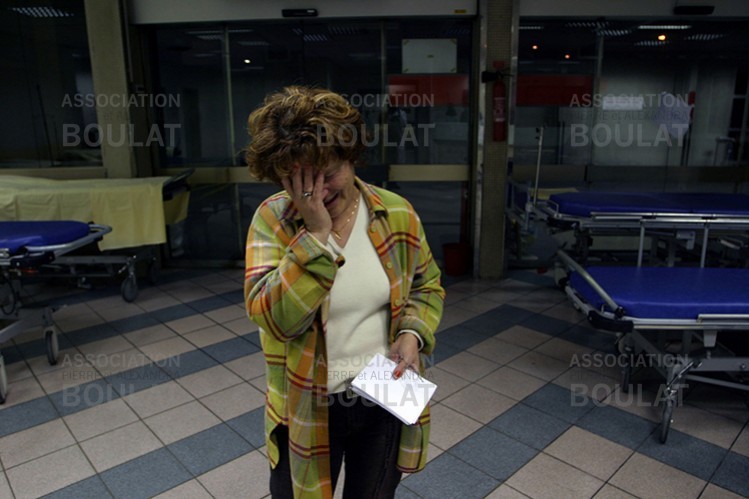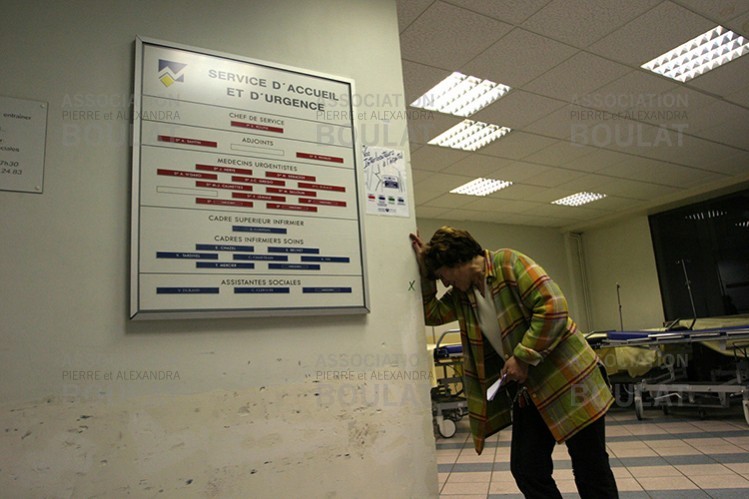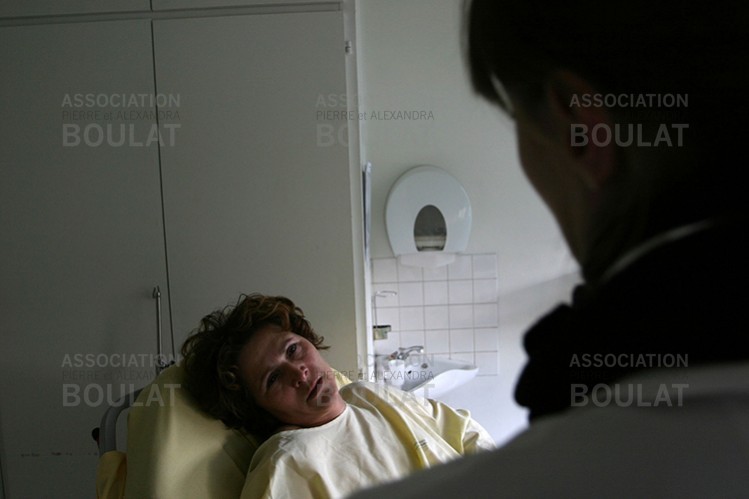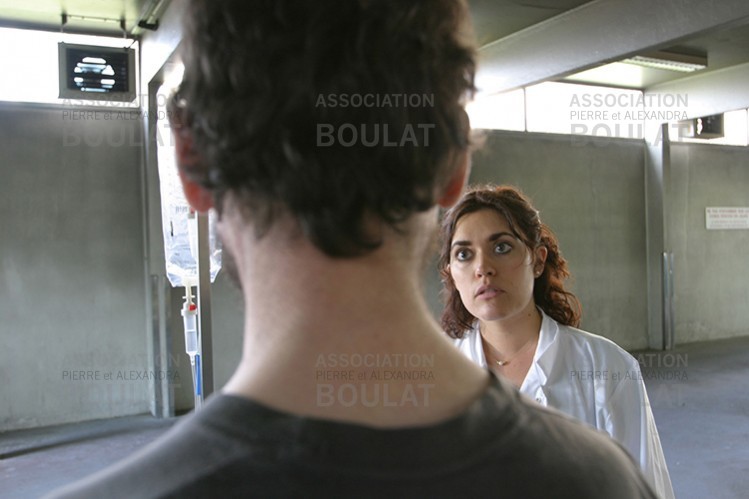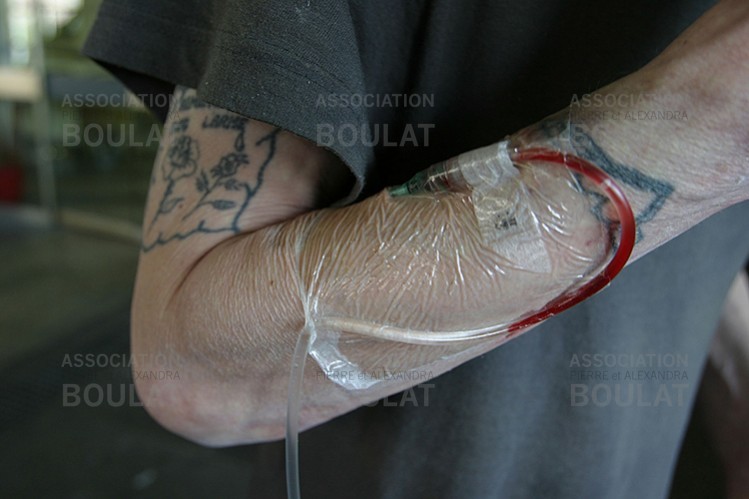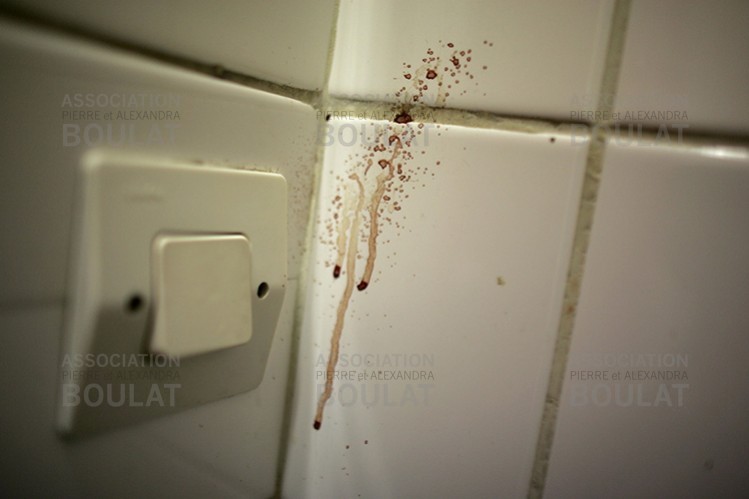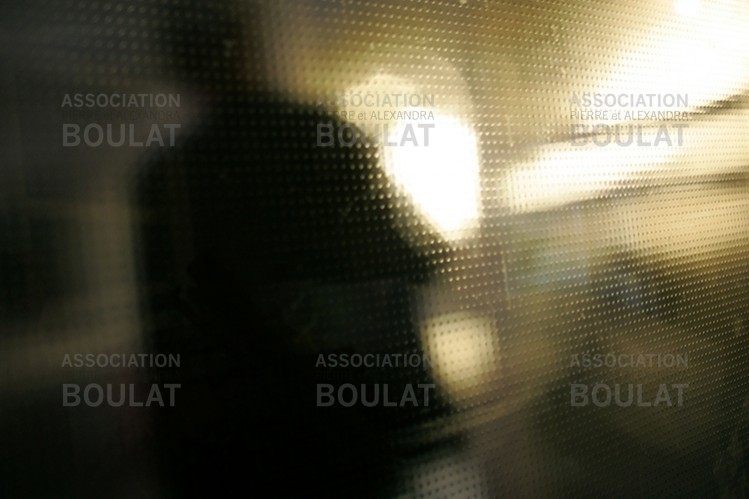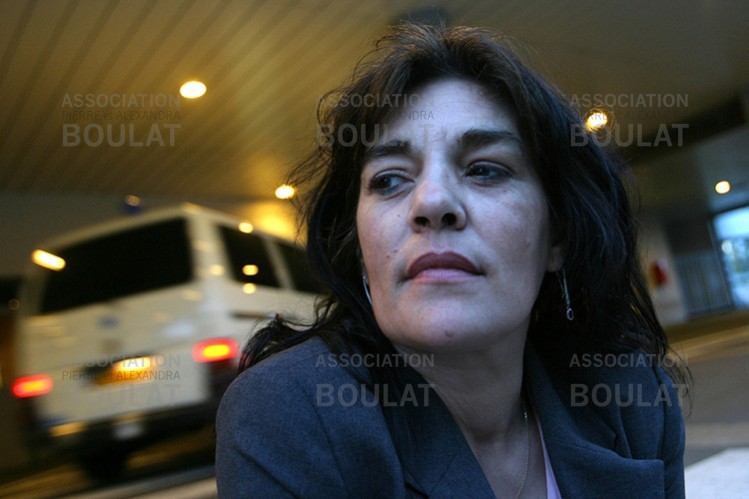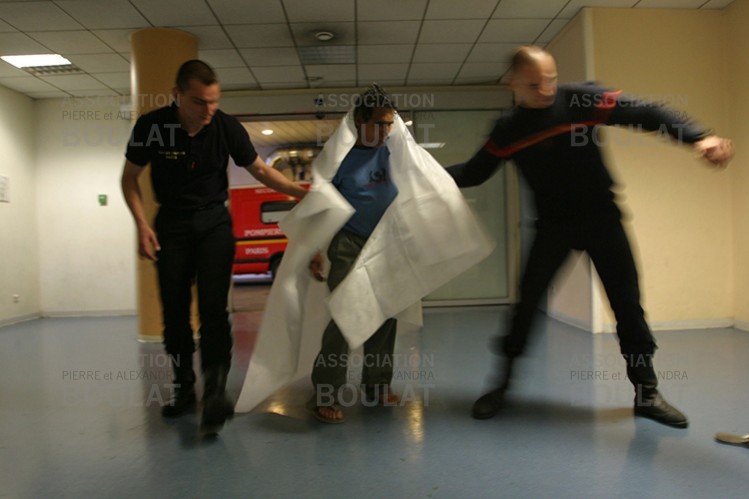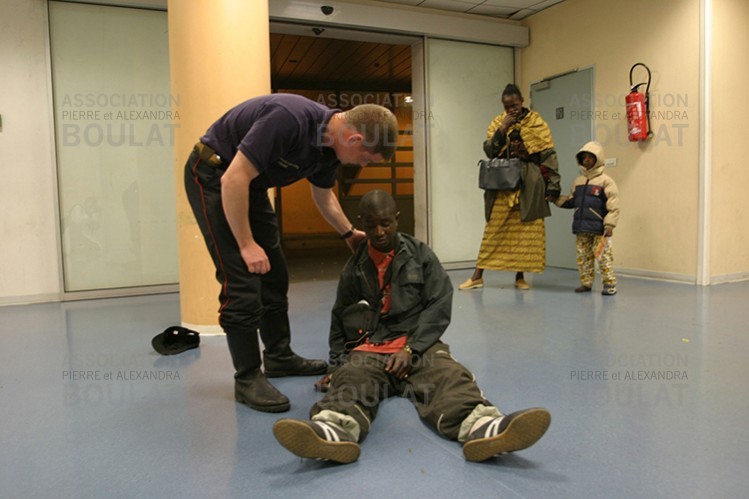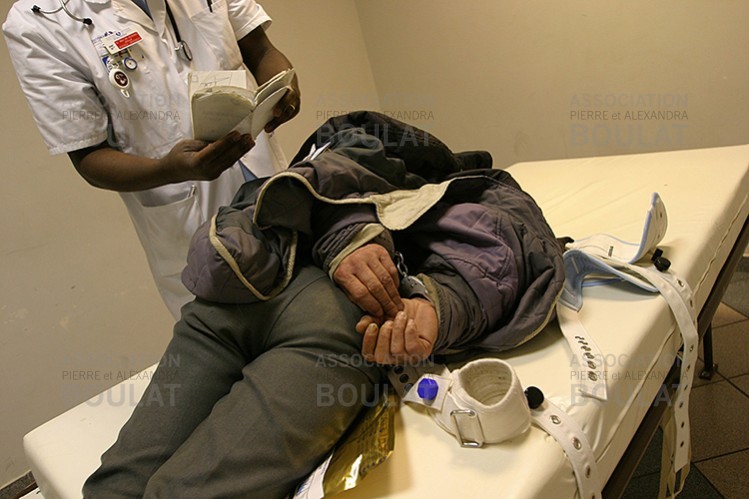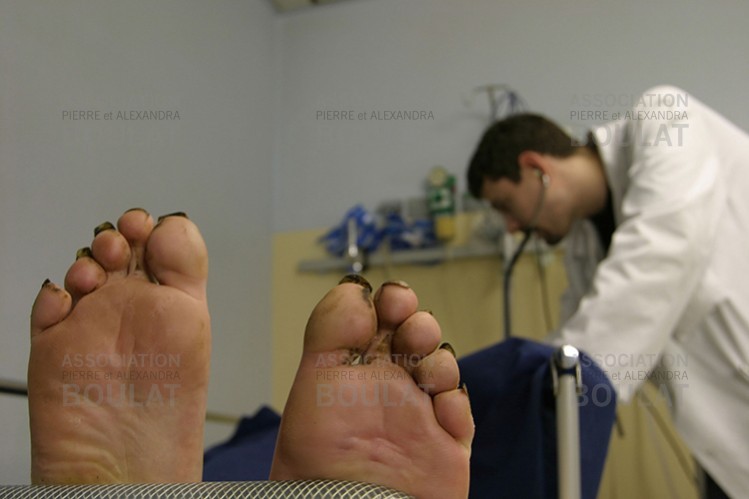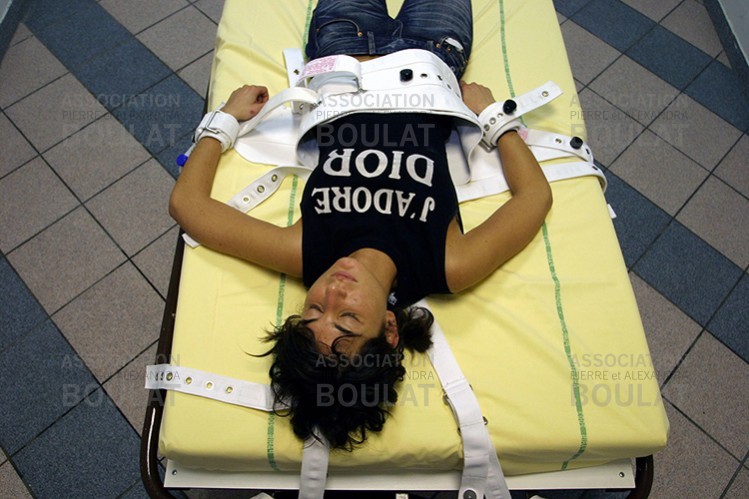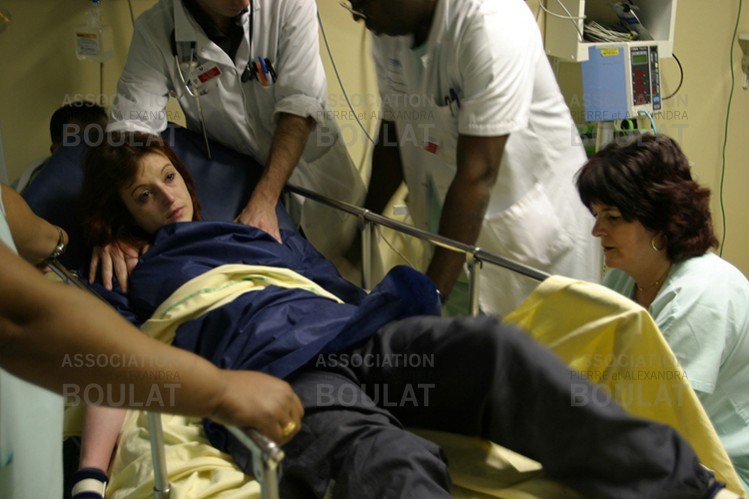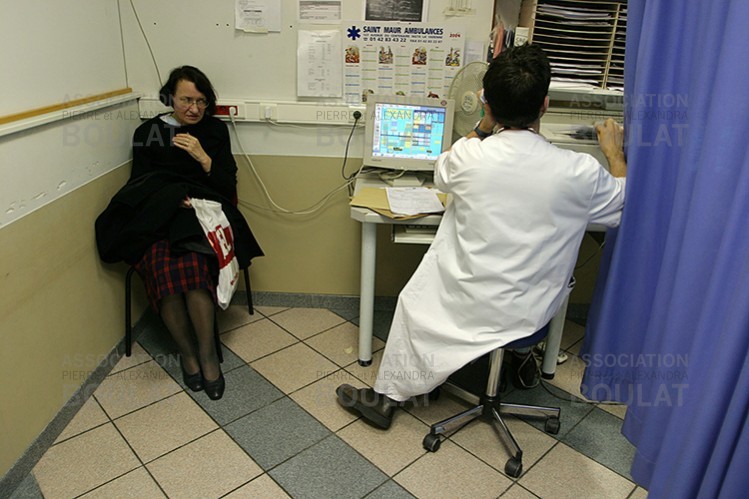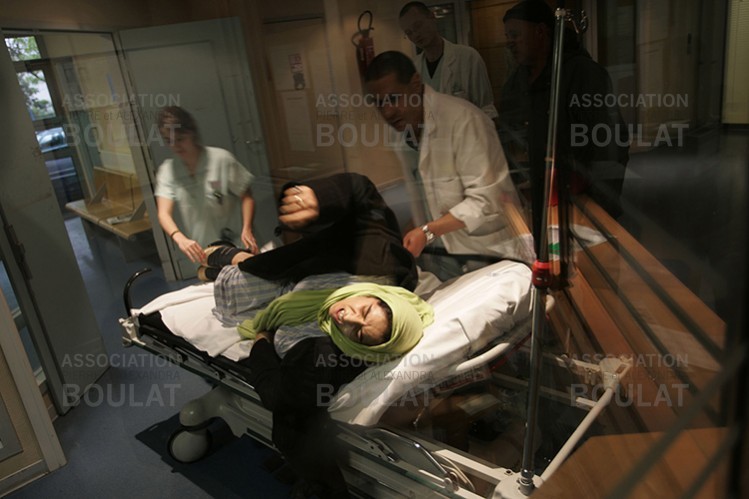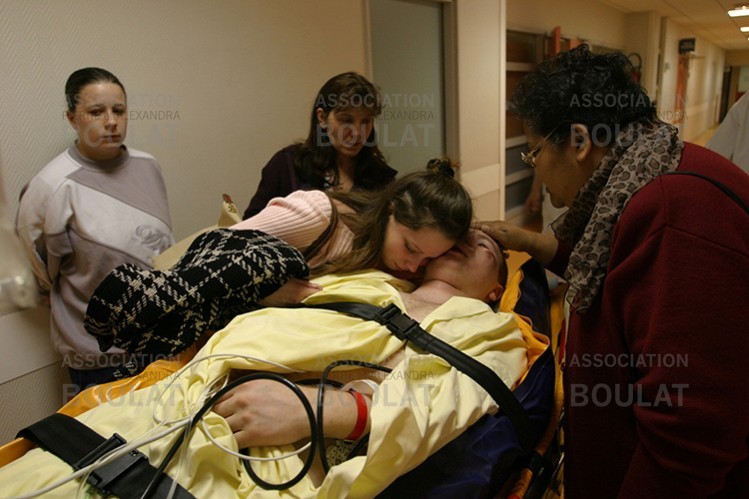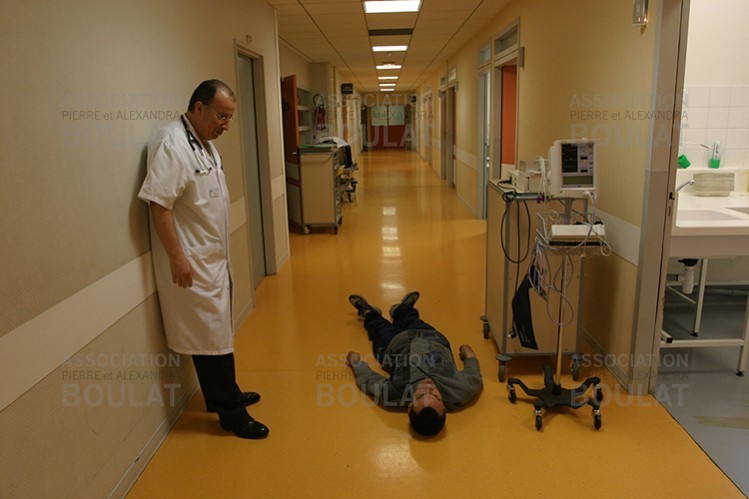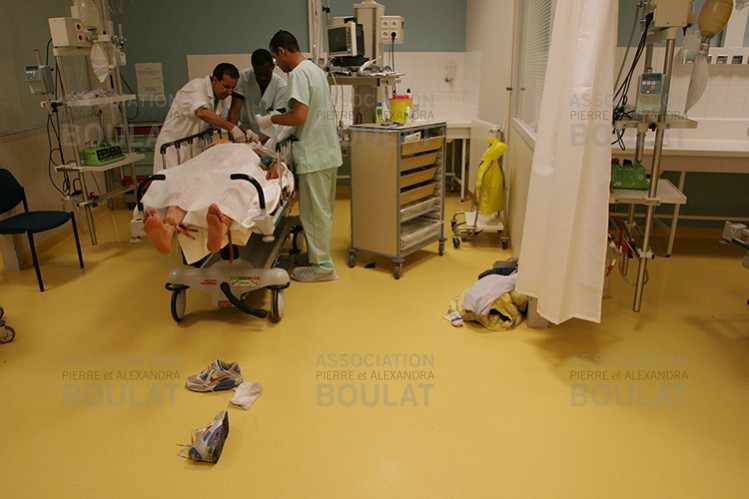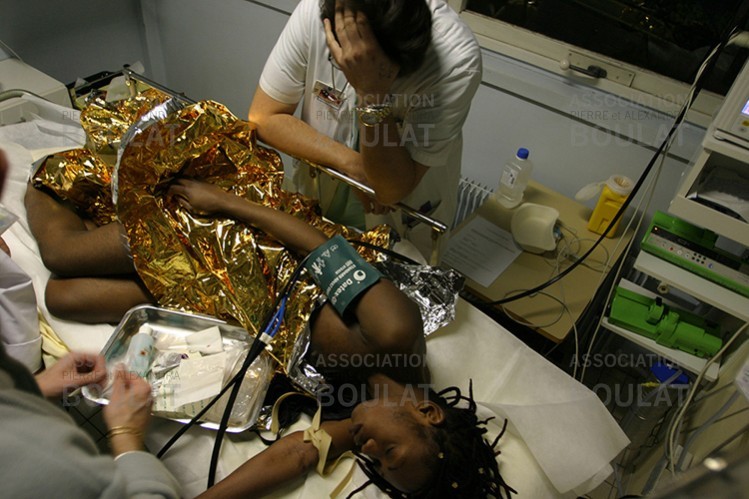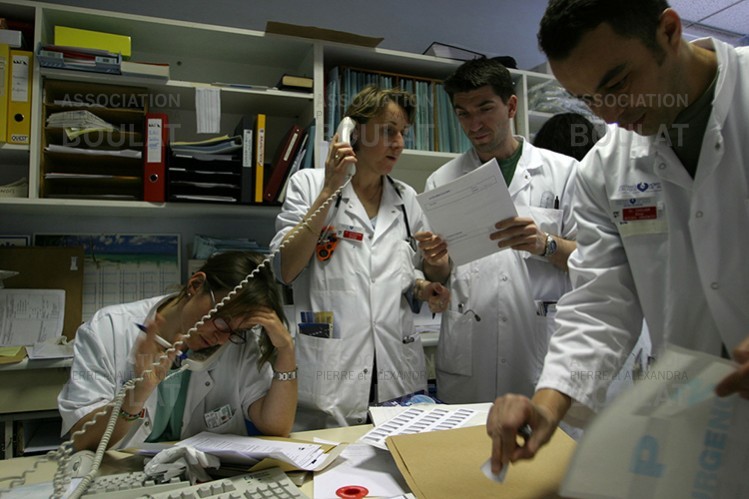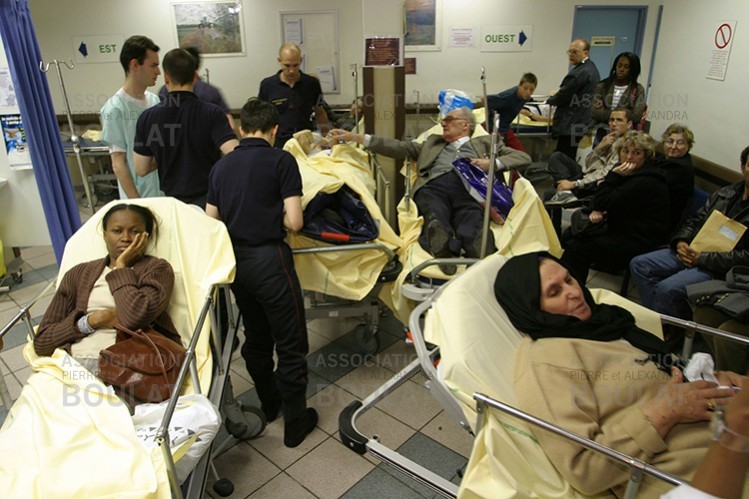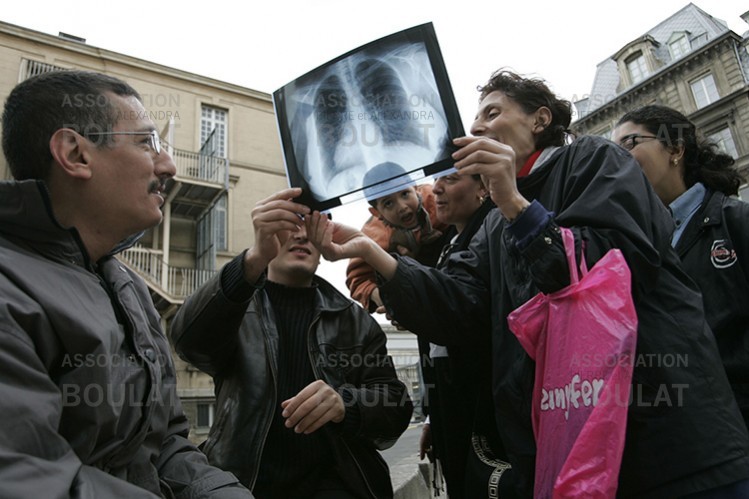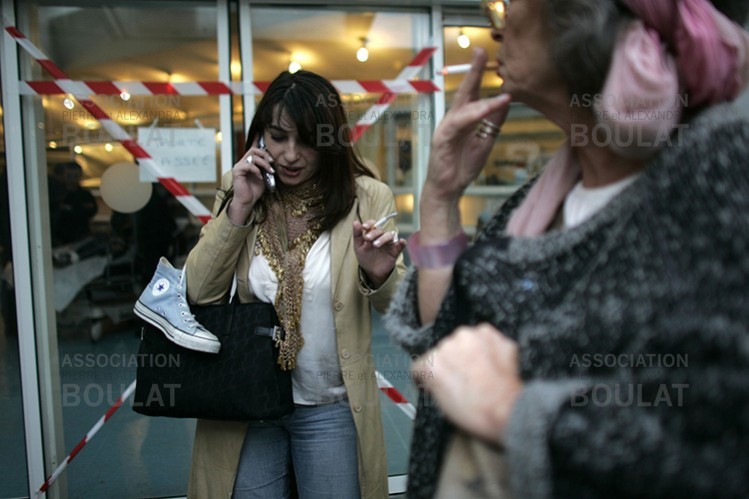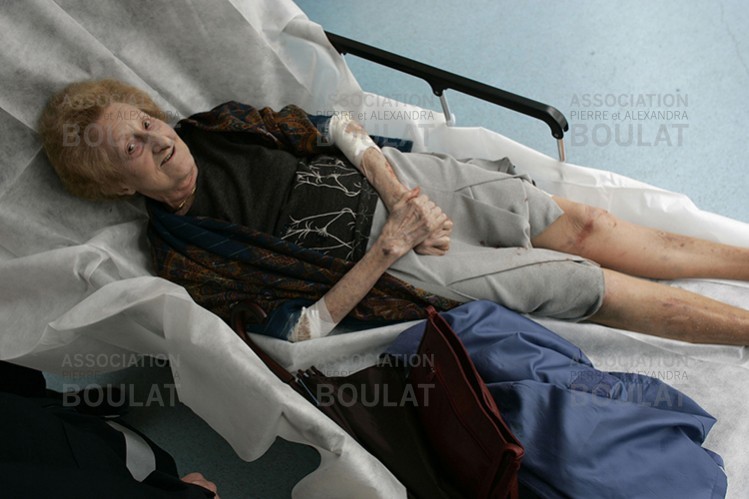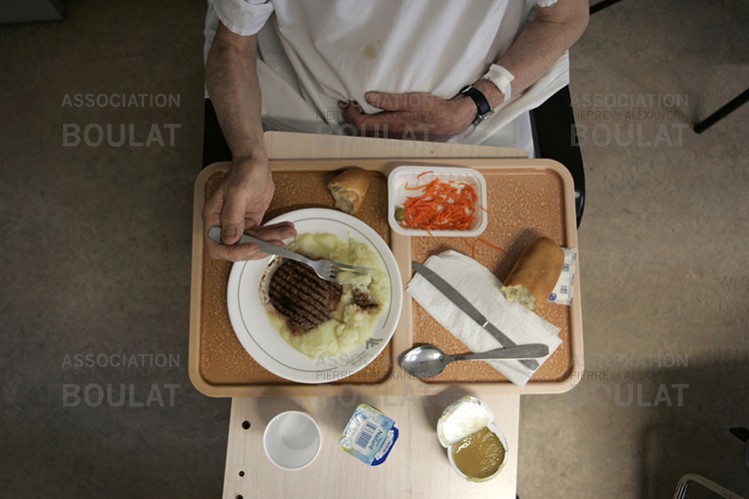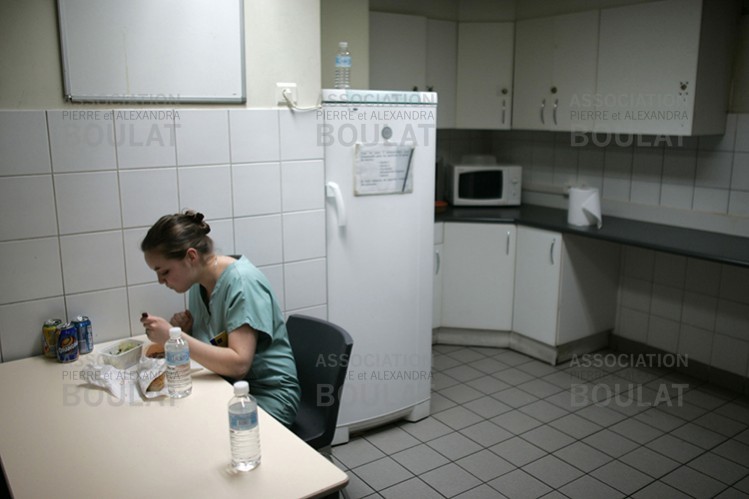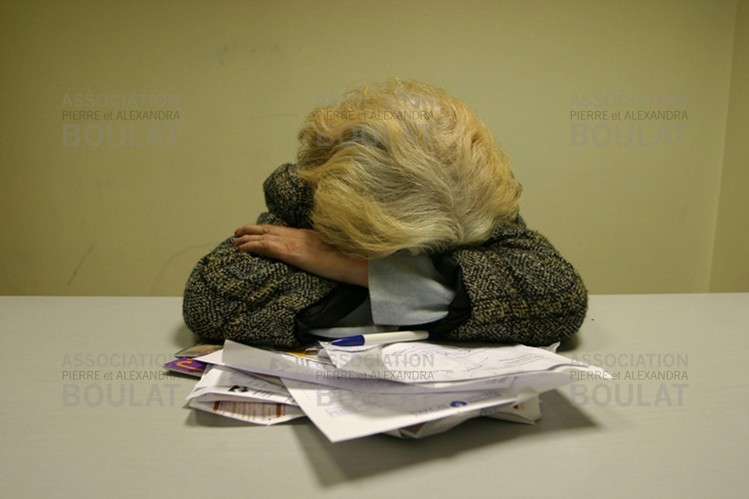Alexandra Boulat
Emergencies
Alexandra spent several weeks in the emergency departments of hospitals in the Paris suburb Henri Mondor in Créteil, a suburb with a mixed population, Delafontaine in Saint Denis, at the foot of the city of La Courneuve and at Lariboisière, the largest service urgency of the city of Paris, with an average of 170 to 200 loads per day taken: the factory ! The doctors recommend that she dressed in a white blouse to fully integrate, to be present during the full moon nights, not to miss the period of monthly payroll, for assault at the exit of the post office, or come on Monday, a day often charged due to weekend gloomy and calculation of “emergency Monday, Tuesday sun.”
“Access coded, opaque glass doors that open automatically as inside the service, all lockers locks, guards in navy blue suit and pale complexion, so many details that evoke a security problem. “Some patients loose their nerve after hours of waiting and become aggressive !
An evening like any other during the week, I spent a few hours in the waiting room of the Emergency Hospital Delafontaine in Saint Denis. Instead of tobacco odors common to public places, it is a smell of alcohol, urine and detergent that planes. Upon the three vending machines, only one is in working condition. Hung high on a wall, a black metal splint recall the days there was still a TV to contain impatient. The bathroom door half open is riddled with graffiti and near the interrupter, I note a splash of dried blood … that an addict, who seeks after its intravenous kit, distributed free at the home, had to rush to the toilet to go shoot.
Just enter the waiting room, I immediately challenged: “Madame! Help me! I’m drunk!” The guy is not yet twenty years old, he is of African origin, his hand outstretched toward mine is covered with rings and bracelets. -Wait! A nurse will come and help you. I’m not a doctor but just a photographer. -OK! It’s okay, Mrs. Doctor Photographer, help me, have mercy, do something! And the guy collapses at my feet, suddenly totally inert.
Besides the collarbone broken, the weekends too close to the barbecue, the street accidents, ailments of all kinds and stroke, more and common, emergencies are the hospice of all suicide attempts, over doses, depressions and crises hysteria… At peak times, the staff, well established, is grind and hospice charity shows its true face: Sylvie, who arrived at Henri Mondor with “a great sorrow,” full stomach drug absorbed in alphabetical order, will end attached to a stretcher. Fernanda despite tears and redness waves in the lower back will not convince a doctor that her husband beat her. His case will be treated on the field and she will not even spend the night at the hospital.”


